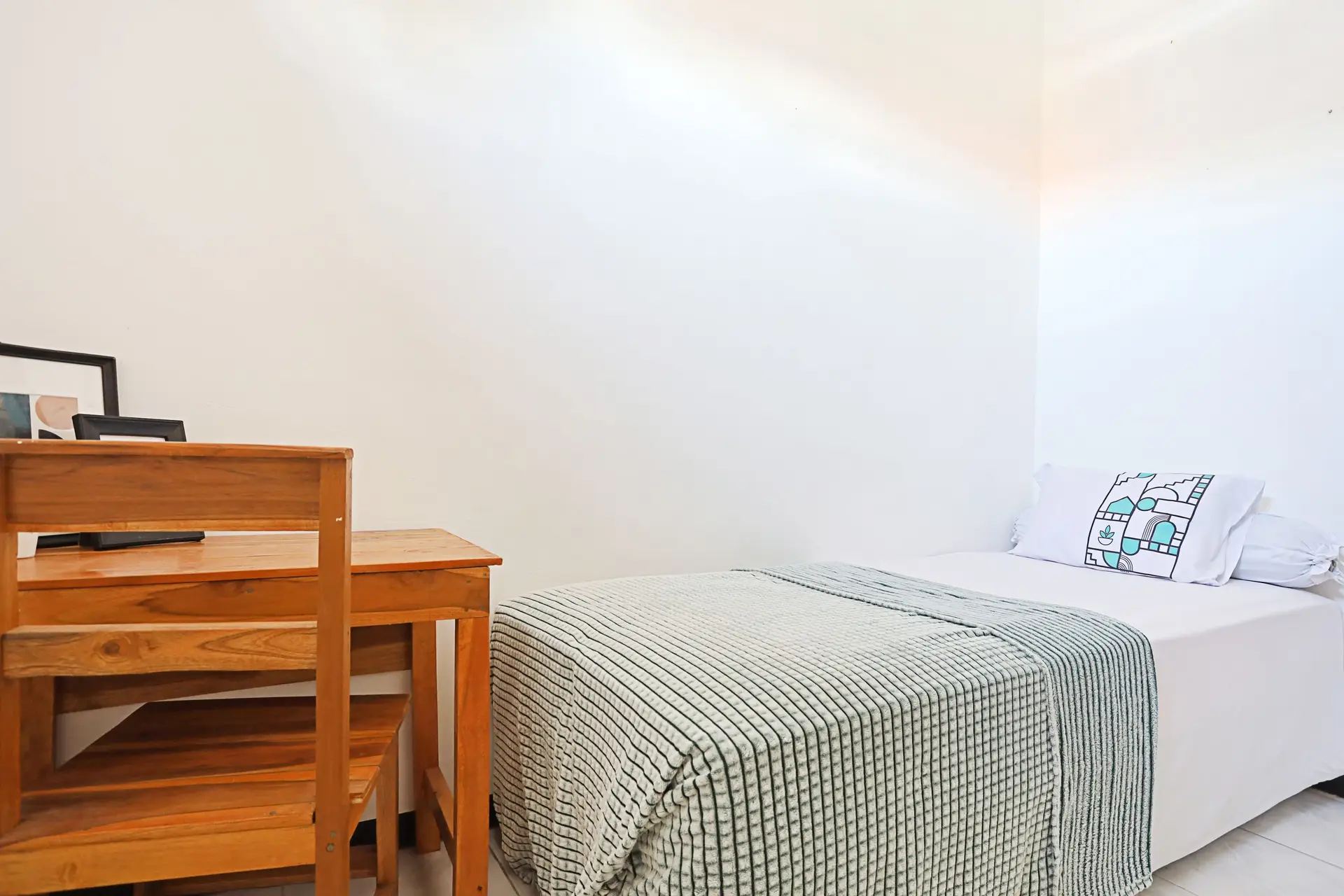The True Cost of Living in Indonesia | What Expats Should Know

Understanding cost of living in Indonesia.
Thinking about moving to Indonesia? Whether you’re relocating for work, retiring, or just looking for a fresh adventure, one of the first things you’ll want to understand is the cost of living in Indonesia. The good news is that compared to many Western countries, Indonesia can be surprisingly affordable—especially if you’re flexible and open to adopting a local lifestyle.
But how much does it really cost to live here? The answer depends on your city, your lifestyle choices, and how much you want to lean into local habits versus sticking to imported comforts. Let’s break down the essentials so you can plan your new life in Indonesia with confidence.
Also Read: A Complete Guide to Work in Indonesia as a Foreigner
Housing, From Affordable Rooms to Luxury Apartments

Accommodation is usually the biggest monthly expense, but the range is wide. In Jakarta, the capital city, renting a modern apartment in the central business district can cost anywhere between USD 600 to USD 1,500 per month, depending on size and amenities. If you’re looking for high-rise living with a pool, gym, and 24-hour security, expect to pay on the higher end.
On the other hand, many expats choose to stay in kosts (boarding houses) or coliving spaces, which are far more budget-friendly. In areas outside Jakarta, such as Yogyakarta or Bandung, you can find comfortable housing for as little as USD 150 to USD 400 per month.
Bali, popular with both digital nomads and retirees, also offers a mix of affordable guesthouses and luxury villas. Villas with private pools in tourist hotspots like Canggu or Ubud can reach USD 2,000 or more, but a cozy one-bedroom house on the outskirts can be as low as USD 300.
If flexibility and convenience are important to you, coliving providers like Rukita are a great option. These spaces often include utilities, cleaning, and even laundry in the rent, saving you from juggling multiple bills every month.
Food and Dining, Local Flavors vs Imported Comforts

One of the best parts of living in Indonesia is the food. Eating like a local is not only delicious but also incredibly affordable. A meal at a street-side warung (local eatery) can cost as little as USD 1–2. Popular dishes like nasi goreng (fried rice), soto ayam (chicken soup), or satay skewers make eating out a daily habit for many Indonesians.
If you prefer mid-range restaurants with international menus, expect to pay USD 5–10 per meal. In cities like Jakarta, Bali, and Surabaya, the café culture is thriving, with trendy spots serving everything from avocado toast to specialty coffee. A latte in a nice café usually costs around USD 2–3.
However, if you rely heavily on imported goods, grocery bills can climb quickly. Imported cheeses, wines, or cereals are often two to three times more expensive than in Europe or the US.
Shopping at local markets and adapting your diet to include fresh tropical fruits, local vegetables, and Indonesian staples like tempeh will keep costs down. For who enjoy cooking, a weekly grocery budget can range from USD 30 to USD 80 depending on how much imported food you buy.
Transportation, Getting Around Affordably
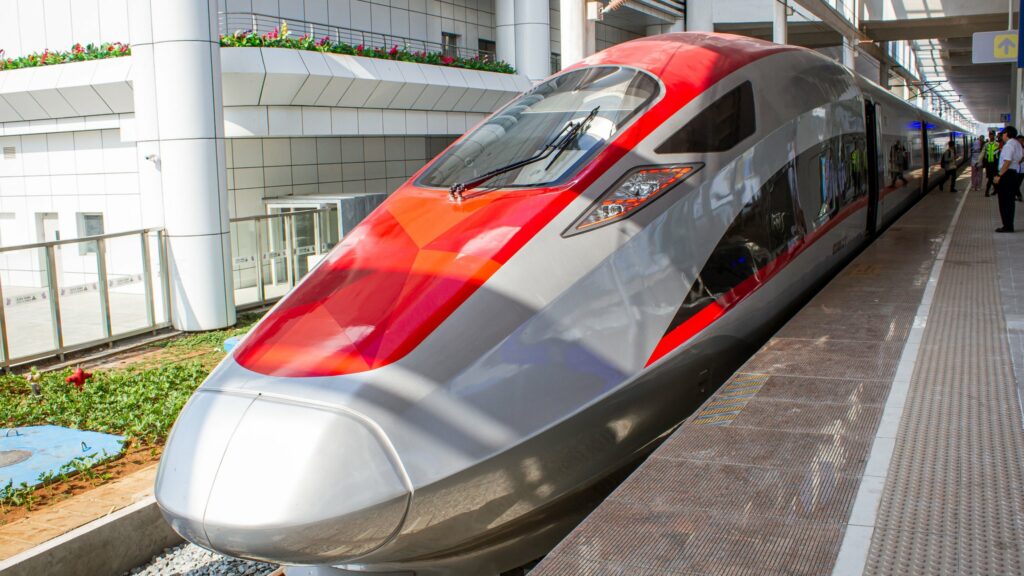
Transportation in Indonesia is quite inexpensive compared to many Western countries. In big cities like Jakarta, app-based ride-hailing services such as Gojek and Grab are extremely popular. A short motorbike ride can cost under USD 1, while longer car trips across town usually fall between USD 3–10.
Public transportation is improving as well. Jakarta now has an MRT line, TransJakarta bus system, and commuter trains, with fares starting at less than USD 0.50. In smaller cities, angkot (minibuses) and ojeks (motorbike taxis) remain common and very cheap.
For long-distance travel between islands, domestic flights are reasonably priced, especially if you book in advance. A flight from Jakarta to Bali can often be found for under USD 100 round trip.
Many expats in Bali choose to rent or buy a scooter, which costs about USD 50–70 per month for rentals. Keep in mind that traffic can be hectic, so driving in major cities requires patience and in Bali, good balance on two wheels.
Utilities, Internet, and Mobile Plans
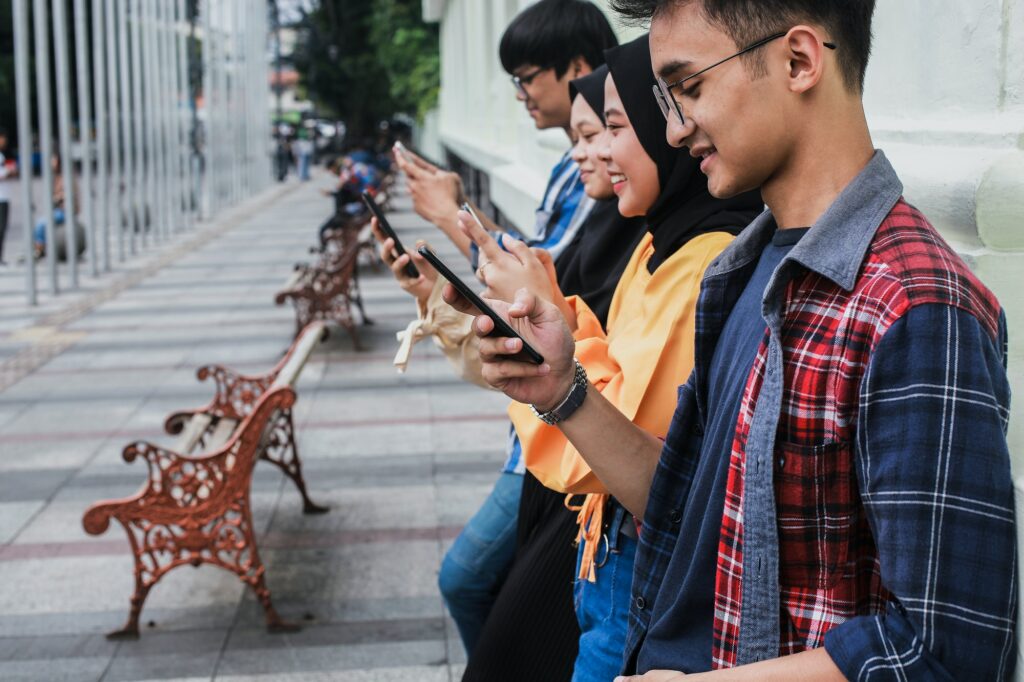
Utilities in Indonesia are generally affordable. Monthly electricity bills vary depending on usage but typically range between USD 30 and USD 70 for a modest apartment. Air conditioning is often the biggest contributor to higher bills, especially in hot and humid areas. Water bills are minimal, usually under USD 10.
Internet is widely available and surprisingly fast in urban areas. A good home Wi-Fi plan costs around USD 20–30 per month. Mobile data is also very affordable, with prepaid SIM cards offering generous data packages for under USD 10 monthly. Providers like Telkomsel, XL, and Indosat are popular and easy to set up.
Healthcare and Insurance

Indonesia’s healthcare system varies significantly between cities. Major urban centers like Jakarta, Surabaya, and Bali have modern private hospitals with English-speaking doctors, but costs can add up without insurance.
A standard doctor’s consultation at a private clinic may cost USD 15–30, while specialist visits or hospital stays can be much higher. Many expats choose to purchase international health insurance, which provides coverage for both routine visits and emergencies.
Premiums depend on your age, coverage level, and provider, but it’s a worthwhile investment if you plan to stay long term. For minor health concerns, local pharmacies are easy to find and carry both local and international medicines.
Lifestyle and Entertainment

Living in Indonesia doesn’t mean sacrificing your lifestyle. In fact, entertainment options are often quite affordable. A movie ticket costs around USD 3–5, while a monthly gym membership ranges from USD 20–50 depending on the facility.
If you enjoy nightlife, Jakarta and Bali have a vibrant bar and club scene, with cocktails costing around USD 8–12. In smaller cities, nightlife is more relaxed and affordable, with beers typically priced at USD 2–3.
Traveling around Indonesia is also a major perk. Weekend getaways to places like Yogyakarta, Lombok, or Komodo are easy to arrange and relatively affordable. Exploring the country’s beaches, volcanoes, and cultural landmarks can be done on almost any budget.
How Much Do You Really Need?
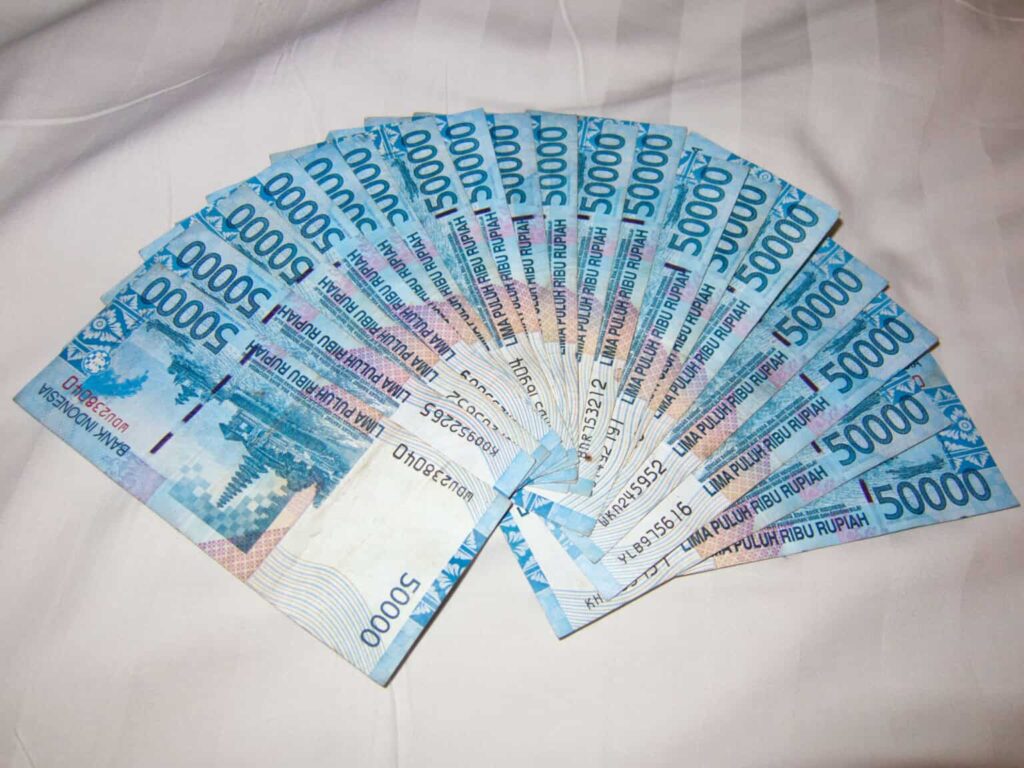
So, what’s the bottom line? A single expat living modestly can get by on about USD 500–800 per month outside of Jakarta or Bali. In bigger cities or if you want a more Westernized lifestyle, you might need USD 1,000–1,500 per month. Those who prefer luxury villas, imported groceries, and private schools for children can expect to spend several thousand dollars monthly.
Ultimately, the cost of living in Indonesia is highly flexible. That’s what makes it attractive: you can live comfortably at a fraction of the cost compared to Western cities, or you can enjoy a high-end lifestyle for less than you’d pay in Singapore, Hong Kong, or Sydney.
Making Life Easier with Rukita
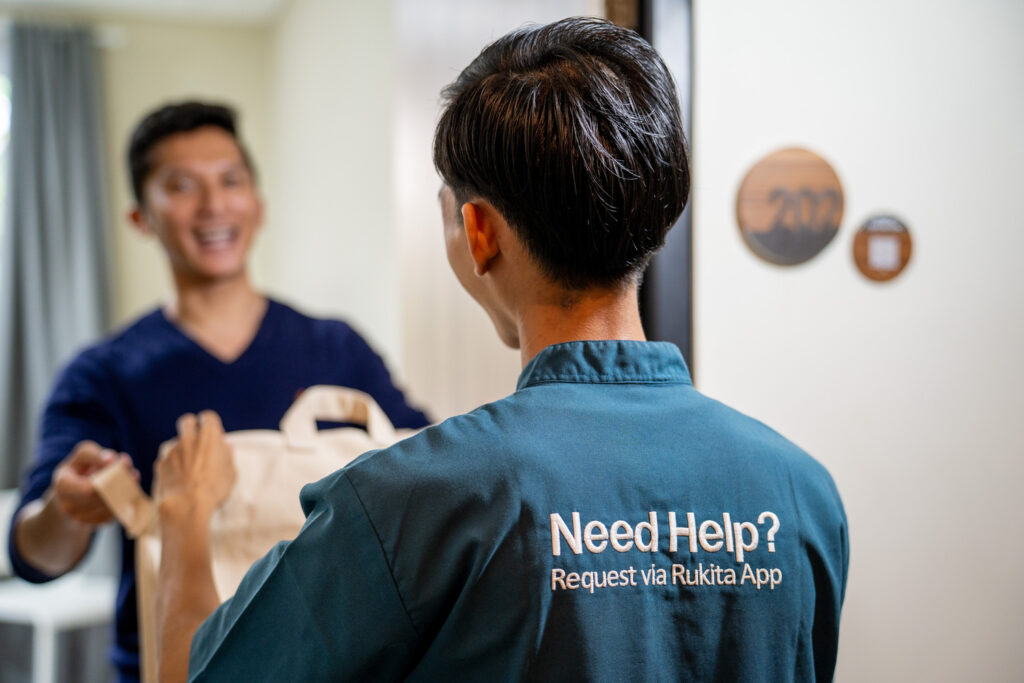
Adjusting to a new country can feel overwhelming at first, but choosing the right housing can make all the difference. That’s where Rukita comes in.
Rukita offers fully furnished rooms and coliving spaces across major Indonesian cities, designed to make expat life easier and more enjoyable. Rent includes essentials like utilities, cleaning, and even laundry, so you don’t have to worry about managing multiple bills. Many properties are located in strategic areas close to business hubs, public transportation, and lifestyle centers, making daily life convenient.
Whether you’re in Jakarta for work, in Bandung for studies, or in Bali for a new adventure, Rukita helps you settle in smoothly and focus on what really matters, enjoying your new life in Indonesia.
Want to find a comfortable, modern, and strategically located apartment to stay in? Rukita offers many kinds of apartments that you can rent to live a more comfortable life.
Don’t forget to download Rukita app via Google Play Store or App Store or visit www.rukita.co. Follow Rukita’s Instagram account @rukita_indo, X account @rukita_id, and TikTok account @rukita_id to get the most recent information and other interesting deals!
Bagikan artikel ini

